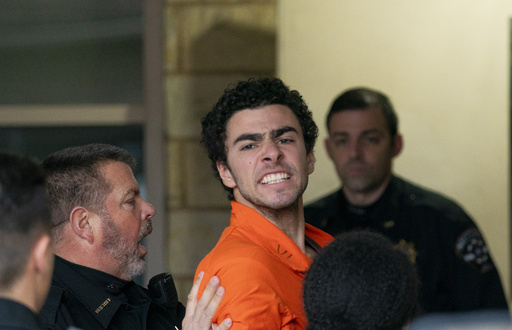WASHINGTON — A recent survey indicates that a significant portion of the American population holds both the actions of the shooter and the practices of health insurance companies accountable for the tragic death of UnitedHealthcare’s CEO, Brian Thompson. While many respondents acknowledge the shooter as primarily responsible for the December 4 incident, around 70% also believe that insurance company profits and their tendency to deny coverage for care played a notable role.
According to the poll conducted by NORC at the University of Chicago, about 80% of U.S. adults believe that the accused shooter, 26-year-old Luigi Mangione, bears “a great deal” or “a moderate amount” of responsibility for Thompson’s death. However, there is a growing segment of the population viewing Mangione as a figure representing the frustrations surrounding health insurance. Reports suggest that the ammunition found at the crime scene was inscribed with terms such as “delay,” “deny,” and “depose,” which are infamous in discussions about the tactics utilized by insurance firms to limit payouts. It should be noted that UnitedHealthcare has clarified that Mangione was not a client of theirs.
The views on responsibility for Thompson’s death reflect a desire among younger Americans to attribute the incident to a broader systemic issue rather than solely the actions of Mangione. Approximately 70% of adults believe that coverage denials and insurance profits contributed to the circumstances surrounding the CEO’s death. This sentiment is particularly notable among younger demographics, who see multiple intersecting factors leading to such tragic events.
The public interest surrounding this case is substantial, with about 70% of respondents claiming to have heard considerable information about Thompson’s murder. Alongside perceptions of health insurance, roughly 50% of participants cite economic disparities as having some degree of responsibility for the tragedy, although they do not view political discord as a relevant factor to the same extent.
The criticisms levied against insurance providers often stem from patients and healthcare professionals who express dissatisfaction with coverage denials that hinder access to treatments for serious conditions, including cancer and ALS. Advocates and critics of the industry frequently highlight the more than $16 billion profit UnitedHealthcare reported last year, contrasting this with the extensive claims made on behalf of patient care interests. The company has asserted that it processes around 90% of medical claims presented to them, yet details on specific figures remain limited.
Among younger citizens, the sentiment surrounding the tragedy is nuanced. Those under 30 tend to distribute blame more evenly among the shooter and insurance firms. The survey reveals that approximately 70% of this demographic attribute a considerable degree of responsibility to both the insurance practices and the individual responsible for the killing. Additionally, younger respondents are less likely to assign a significant level of blame to Mangione compared to older counterparts, with 40% of those under 30 believing he holds substantial responsibility, versus 60% of those ages 30-59, and approximately 80% of individuals over 60.
Furthermore, 66% of young adults express concern over wealth inequality, viewing it as a component contributing to societal issues, while the younger cohort is also notably more inclined to criticize media representation of such events.
Moreover, about 30% of the adults surveyed indicated they faced challenges securing coverage from their health insurance within the past year. These obstacles include difficulties in finding approved providers, claims being rejected, or problems with obtaining necessary pre-authorization for medical care. Such frustrations appear to be more prevalent among those below the age of 60.
The complexities of the U.S. healthcare system, along with prior authorization requirements, are often criticized for impacting the timely delivery of care. UnitedHealthcare defends these measures, claiming that they protect against potential wasteful spending and ensure people are informed about coverage before treatments commence, noting that only a small fraction of their clients face annual denials related to prior authorizations.
Additionally, 30% of respondents indicated that their immediate family or close acquaintances had difficulties with their health insurance coverage over the past year. Younger individuals are also among those statistically more likely to lack health insurance altogether.
Most Americans typically receive their health coverage through their employers or by purchasing individual plans. Meanwhile, government-supported programs cater to those with lower incomes, individuals aged 65 and older, or individuals with significant health issues or disabilities.
The survey, which involved 1,001 adult participants, was conducted between December 12 and December 16, 2024. It utilized a probability-based sample designed to reflect the representation of the U.S. population, with a margin of sampling error of ±4.2 percentage points.




